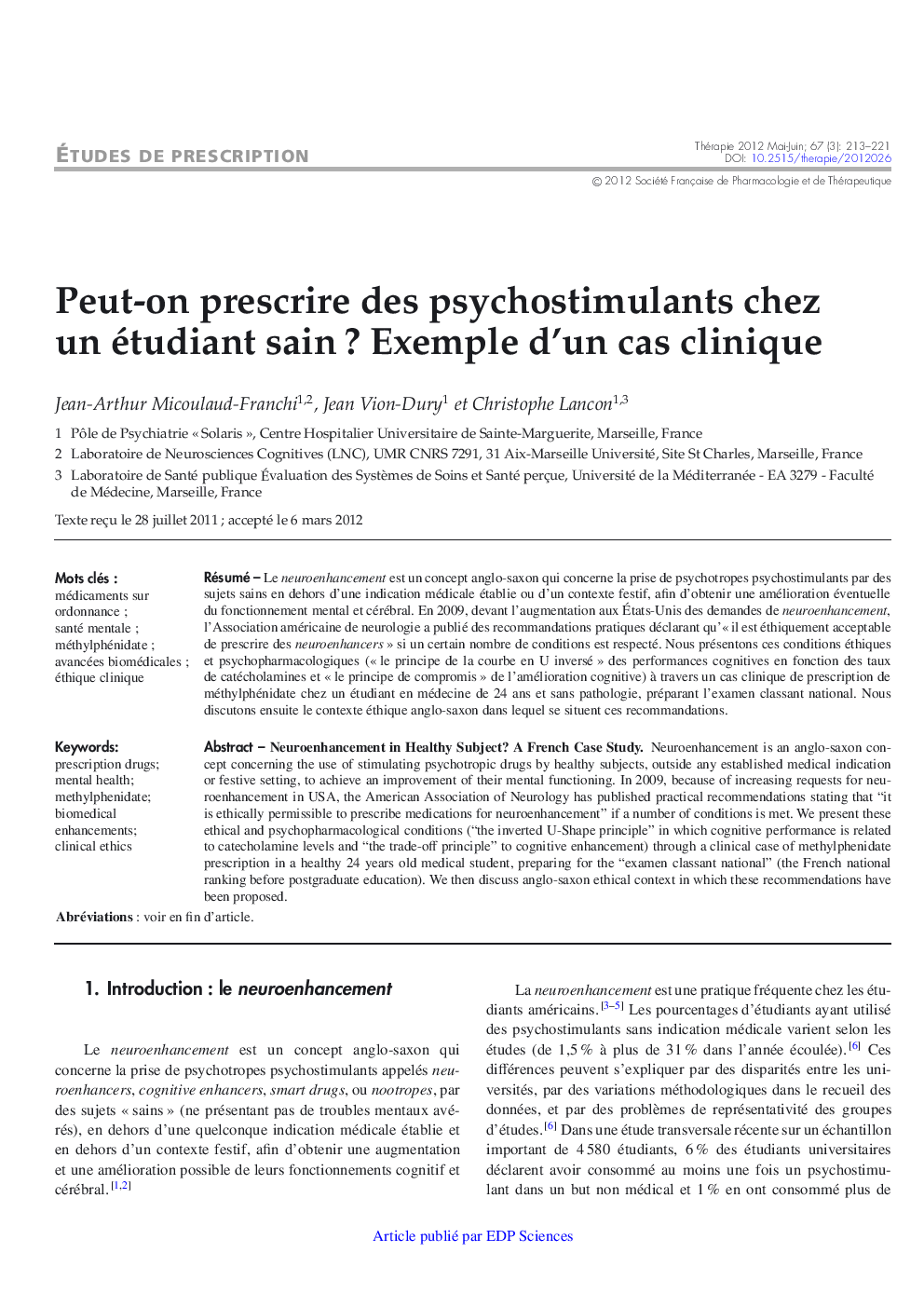| Article ID | Journal | Published Year | Pages | File Type |
|---|---|---|---|---|
| 2579078 | Thérapie | 2012 | 9 Pages |
Abstract
Neuroenhancement is an anglo-saxon concept concerning the use of stimulating psychotropic drugs by healthy subjects, outside any established medical indication or festive setting, to achieve an improvement of their mental functioning. In 2009, because of increasing requests for neuroenhancement in USA, the American Association of Neurology has published practical recommendations stating that “it is ethically permissible to prescribe medications for neuroenhancement” if a number of conditions is met. We present these ethical and psychopharmacological conditions (“the inverted U-Shape principle” in which cognitive performance is related to catecholamine levels and “the trade-off principle” to cognitive enhancement) through a clinical case of methylphenidate prescription in a healthy 24Â years old medical student, preparing for the “examen classant national” (the French national ranking before postgraduate education). We then discuss anglo-saxon ethical context in which these recommendations have been proposed.
Keywords
Related Topics
Health Sciences
Pharmacology, Toxicology and Pharmaceutical Science
Pharmacology, Toxicology and Pharmaceutics (General)
Authors
Jean-Arthur Micoulaud-Franchi, Jean Vion-Dury, Christophe Lancon,
